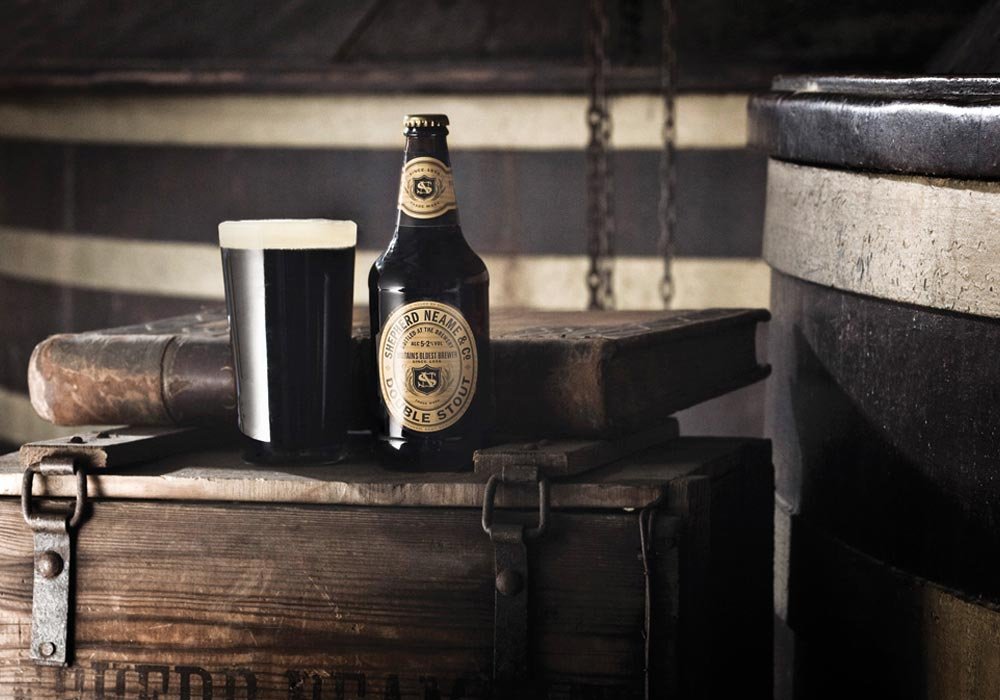Don’t miss a Drop

 Riday Thakur
Riday Thakur
Founder & Director, Yeast India Company
The rising aspiration of urban Indians has paved the way to adopt tastes from all over the world. Increasing globalization, urbanization, rising income, growth of organized retail, changing lifestyles and food habits have welcomed many sophisticated food & alcohol manufacturers across the globe. Without them you can say goodbye to Washington apples, Australian Kiwifruit, Swiss chocolates, French cheese & Italian wine. One of the earliest imported beer into India was Heineken & Corona, circa 2009, and only served in 5-star Hotels, Embassies & Duty-free outlets. In 2018, it’s impossible to imagine not savouring a Leffe, Sol, Hoegarden, Stella Artois, Chimay, Schneider Weisse or even a Desperado from the shelves of our favourite retail outlets, pubs, lounges and beer cafés. Have you ever stopped and wondered how these beautifully bodied bottles made their way into our country? Well we did! We interviewed the soul of Yeast India Company whose sole purpose is marketing craft beers & spirits into India. Riday Thakur, founder & director, in an all exclusive insight into the world of importing beers, licensing and regulations.
Could you give us a brief introduction to what Yeast India Company is? What was your understanding of the beer markets at that point?
My father was the Executive Director of Shaw Wallace and Co., hence I’ve always keenly followed trends in the liquor industry. While studying in California, I was exposed to craft beer at a fairly young age. After completing my MBA at ISB Hyderabad, I was working at my family’s liquor distribution business Jorini Hospitality and looking for opportunities with craft beer in India. I met Navin Mittal and Rahul Mehra of Gateway Brewing Co. to learn home brewing and during this process I got to meet a lot of people who were extremely bullish about craft beer in India. This is when I knew the time was right to expose consumers to the international world of craft beer and Yeast India Co. was born. We initially imported beers ourselves (Trooper and Old Tom from Robinsons Brewery in the UK) but later realised there were enough companies that had the infrastructure already built for imports and they were looking for partners for specific markets in India. That’s when we decided to work with these companies and handle sales, marketing and distribution for Maharashtra.
Currently what imported beers do you bring into the market? And where are they available?
We currently handle the following brands in Mumbai – Erdinger (Germany), Hobgoblin (UK), Shepherd Neame (UK), St. Peters (UK), Chimay (Belgium), Delirium (Belgium), Aecht Schlenkerla Rauchbier (Germany), Amigos (UK), Moonshine Meadery (India) and Henneys Ciders (UK). They are available at all the leading craft beer focused bars in Mumbai like Woodside Inn, Irish House, Beer Café, Eddies, Sammy Sosa and retail outlets in Mumbai like Hopscork, Patel Wines, Season Wines, Nicobar, etc.
Being distributors for imported beer brands, could you talk to us about a few of the challenges you’ve dealt with centric to licencing and government policies?
The duty structure is unfortunately extremely unfair towards imported beers. After paying a 110% custom duty, an imported beer distributor in Maharashtra has to pay 175% excise duty and 35% VAT. Its due to these unfair tax structures that imported beers are atleast 3 times more expensive than domestic beers in Maharashtra.
The FSSAI and Maharashtra State Excise have very specific requirements for the front and back labels of the beers. Since there is so much additional information that goes on the labels, the breweries generally have to print special labels for India and this drives the prices further up.
Could you give us concise flow of how your operations work once the products land on Indian soil? Given that alcohol is state subject, how does it work state-to-state?
I think it’s a known fact across every industry in India that every state operates like a separate country with its own sets of rules and policies; and the imported craft beer industry is no exception. Fortunately, in Maharashtra, unlike most of the other states where government controls alcohol distribution, distributors are able to ensure that imported craft beers get the correct handling and are placed in the appropriate outlets. So, we generally work with a few importers who ensure that we always receive the best quality beers and freshest stocks. Once the stocks are in the custom bonded warehouse, we issue a transport permit to the importer to get the beers into our warehouse in Mumbai. From there we take care of sales, marketing, and distribution of these brands across Mumbai. In most states, the stocks directly go from the importer to a government-controlled warehouse and it is the responsibility of the bar or wine shop owner to get those stocks delivered to his or her outlet.
Talk to us about the challenges you face with storage and logistics?
This is by far one of our biggest challenges. Due to the high costs associated with cold storage and cold chain logistics, we always tend to work with companies that pasteurize their beers as it is impossible to have cold chain logistics in place without making the beers exorbitantly more expensive. Once the beers enter our warehouse we ensure that the beers are stored in cool, dry conditions without being directly exposed to sunlight. But then again, once the beers leave our warehouse, we have no control over how the retail shop or bar is storing the beers.
How does setting a price point for imported brands work?
As much as we would like to be competitive with the pricing of our beers, the high duty and tax structures in Maharashtra do not always allow us to do so. Hence the goal is always to keep the price of the beer as low as possible, sometimes even affecting our distributor margins.
 Currently available in the Maharashtra markets, do you plan on expanding your reach towards the South (Bangalore)?
Currently available in the Maharashtra markets, do you plan on expanding your reach towards the South (Bangalore)?
We had earlier tried to enter the Bangalore market, but due to the heavy restrictions imposed by KSBCL, there is no role for a distributor in Karnataka. And if we physically cannot control the storage and logistics, it is not practical for us to be involved in that state.
Any plans to expand your product range? If yes, which brands would you like to bring in next? Do you have a specific criterion to selecting the brands you import?
The goal is to get some of the big craft beer brands from US and Europe like Brewdog, Stone brewing, Ballast Point, Firestone, etc. down, but the biggest challenge there is they need cold chain logistics. Given how handicapped we are with price points, we cannot really go hunting for brands that we feel will be successful in India, it’s more dependent on which brands are keen to enter the Indian market and how we can work together to ensure the consumer is not paying heavy prices for a bottle of beer.
What is the future looking like for Yeast India Company?
We are rapidly expanding in the Gin market and also handling distribution for some niche Indian and international tonic waters. We are also keenly looking at working with a few domestic craft beer brands to handle their sales & distribution for Maharashtra. As of now we have Moonshine Meadery on board, Asia’s first meadery and they are doing exceptionally well in Mumbai.
Clearly, the world is now one integrated small village and global trends will come into play, imported beers in India will continue to grow and create more choices for Indian palates. We can’t wait to see what’s in store for the future and on the shelves of our retail markets.






